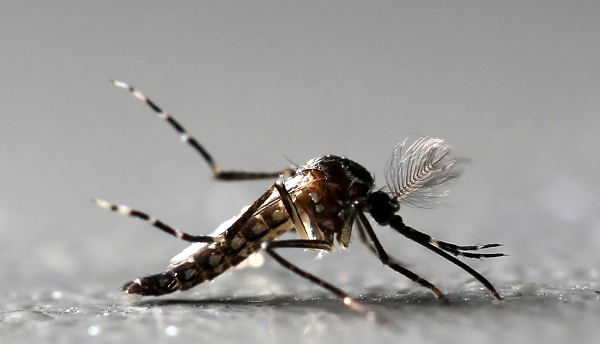What Will The Next Epidemic Be? 101 Dead In Yellow Fever Outbreak In Brazil

Doctors are worried Brazil’s yellow fever outbreak could be as devastating an epidemic as the Zika virus, the New England Journal of Medicine reported. More than 100 people have already died from the virus, which is spread by Aedes aegypti mosquitoes.
Initially, doctors weren’t concerned the few instances of yellow fever would turn into an outbreak because the majority of the cases, which were first reported in December, were among people living away from heavily populated urban cities and closer to Brazil’s jungles. However, the number of people contracting the virus is rising sharply, the report said.
Read: After Zika, Ebola Outbreaks, $460M Initiative Seeks Vaccines For Potential Epidemics
Since December, 1,336 cases of yellow fever have been reported in South American countries including Brazil, Colombia, Peru and Bolivia. In Brazil specifically, 292 cases have been reported so far, the Pan-American Health Organization (PANO) said, while 920 suspected cases in the country are still being investigated by health officials. Although PANO confirmed 101 people in Brazil have died from yellow fever since December, officials are still reviewing 109 other deaths that may be connected to the virus.
The number of yellow fever cases reported so far in 2017 is higher than what Brazil normally experiences this time of year, the report said.
Although reported cases have been predominantly in areas closer to where jungle-dwelling species that transmit yellow fever live, Anthony Fauci, study author and director of National Institute of Allergy and Infectious Diseases, told the Washington Post Wednesday it's possible mosquitos in heavily populated cities like Sao Paolo and Rio de Janeiro could become exposed to and spread the disease more rapidly in a human-to-human cycle, if they come in contact with an infected traveler.
If that were to happen, millions of people living in Brazil’s bustling urban areas could be at risk of the virus.
There is a vaccination against yellow fever, according to the World Health Organization, which provides lifetime protection against the disease. However, it is not routinely administered in the highest populated areas of Brazil, the report said.
Following the Zika outbreak in 2016, 5,109 Americans contracted the virus while 38,099 people living within the U.S. territories contracted the virus, according to the Centers for Disease Control.
© Copyright IBTimes 2025. All rights reserved.






















